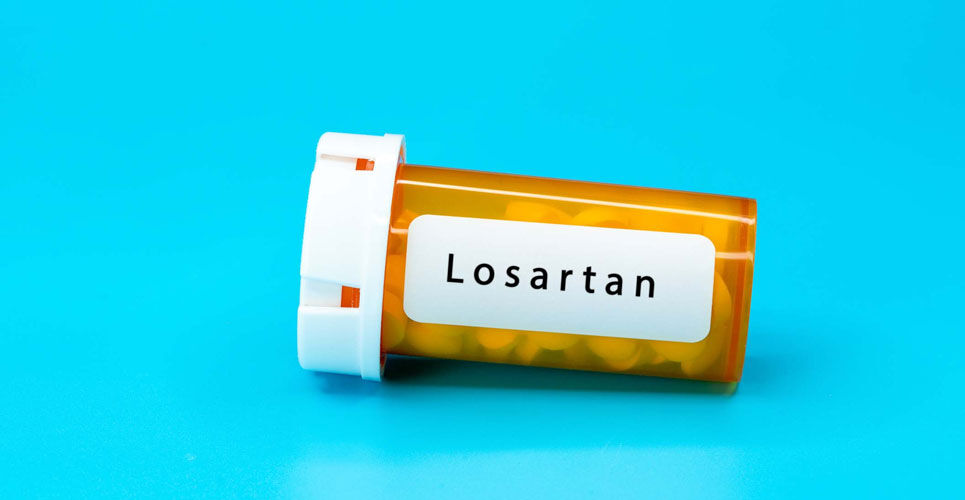Losartan given for 10 days in a randomised trial to hospitalised patients with COVID-19 and acute lung injury was no better than placebo
Use of the angiotensin receptor blocker losartan, in patients hospitalised with COVID-19 and acute lung injury, appears to be no better than placebo. This was the conclusion of a randomised, placebo-controlled trial by researchers from the Department of Emergency Medicine, University of Minnesota, Minneapolis, US.
It has become accepted that COVID-19 can gain entry into cells via an angiotensin-converting enzyme 2 (ACE2) functional receptor on cell surfaces. The renin-angiotensin (RAS) system is a complex network that has an important role in maintaining blood pressure as well as electrolyte and fluid homeostasis, affecting the function of many organs, such as the heart, blood vessels, and kidneys. The angiotensin converting enzyme (ACE) produces angiotensin II which is a potent vasoconstrictor but also increases vascular permeability through the release of prostaglandins to initiate an inflammatory process. Moreover, angiotensin II up-regulates the expression of soluble epoxide hydrolase (seH), higher levels of which are associated with aggravated pulmonary inflammation and oedema and a key factor in the pathogenesis of acute respiratory distress syndrome. Interestingly, this study also observed that use of losartan reduces lung injury by blocking angiotensin II-induced up-regulation of seH, suggesting a potential positive effect for patients with COVID-19. Further support for the role of this class of drugs comes from a 2020 systematic review concluded that the use of both angiotensin converting enzyme inhibitors (ACEi) and angiotensin receptor blockers (such as losartan), was significantly associated with lower odds of mortality compared with non-use of these drugs.
For the present study, the US researchers hypothesised that losartan could reduce the acute lung injury associated with COVID-19 infection. They recruited patients hospitalised due to severe COVID-19 but who were not prescribed either an ACEi or angiotensin receptor blocker drug. Participants were randomised 1:1 to either losartan 50 mg twice daily or placebo and both were prepared by pharmacists into a suspension and then administered for a period of 10 days. The researchers set the primary outcome as the worse recorded ratio of the arterial partial pressure of oxygen to the fraction of inspired oxygen (PaO2/FiO2) after 7 days and this outcome was chosen because it served as a surrogate related to respiratory failure. Secondary outcomes included an ordinal COVID-19 severity scale, the need for ventilation or vasopressors and mortality.
Losartan and COVID-19 outcomes
A total of 205 participants with a mean age of 55.2 years (60% male) were randomised to losartan (101) or placebo.
After 7 days, the mean difference in the PaO2/FiO2 ratio was -24.8 (95% CI -55.6 – 6.1, p = 0.12). In addition, there were no differences in either the time to discharge or in-hospital mortality between those given losartan or placebo.
Surprisingly, more patients assigned to losartan required vasopressors (20% vs 10.7%, losartan vs placebo, p = 0.08).
The authors concluded that the use of losartan in hospitalised COVID-19 patients did not produce an improvement in lung injury or clinical outcomes compared with placebo, based on an assessment of the PaO2/FiO2 ratio.
Citation
Pusharich MA et al. Efficacy of Losartan in Hospitalized Patients With COVID-19–Induced Lung Injury: A Randomized Clinical Trial JAMA Netw Open 2022

